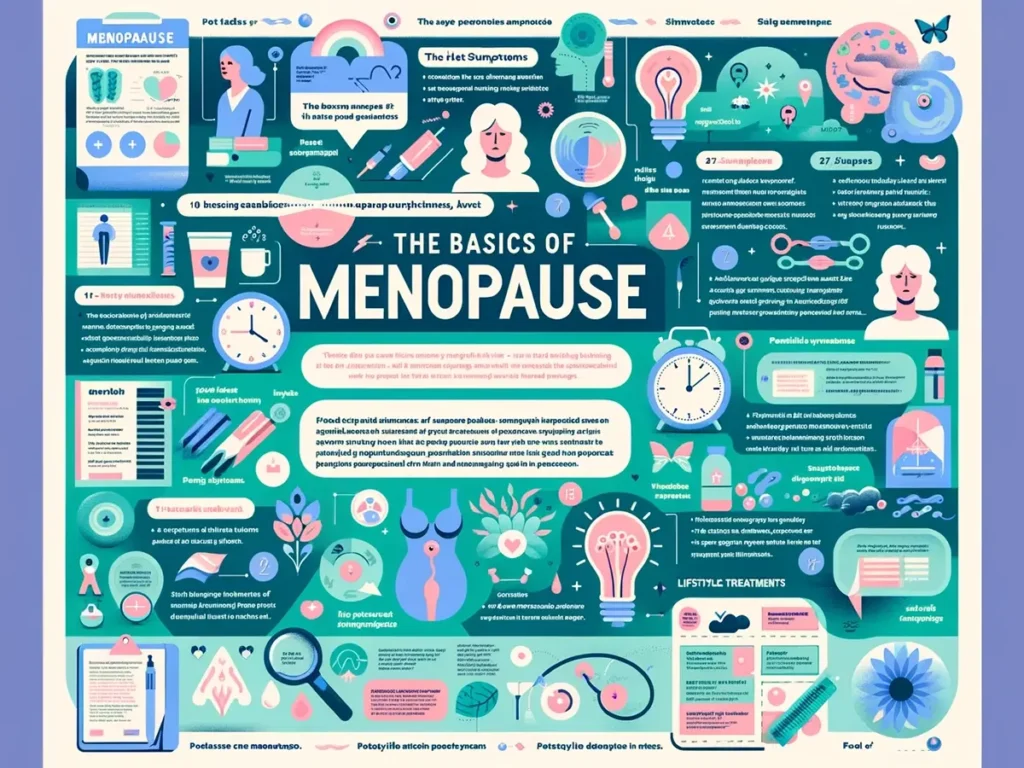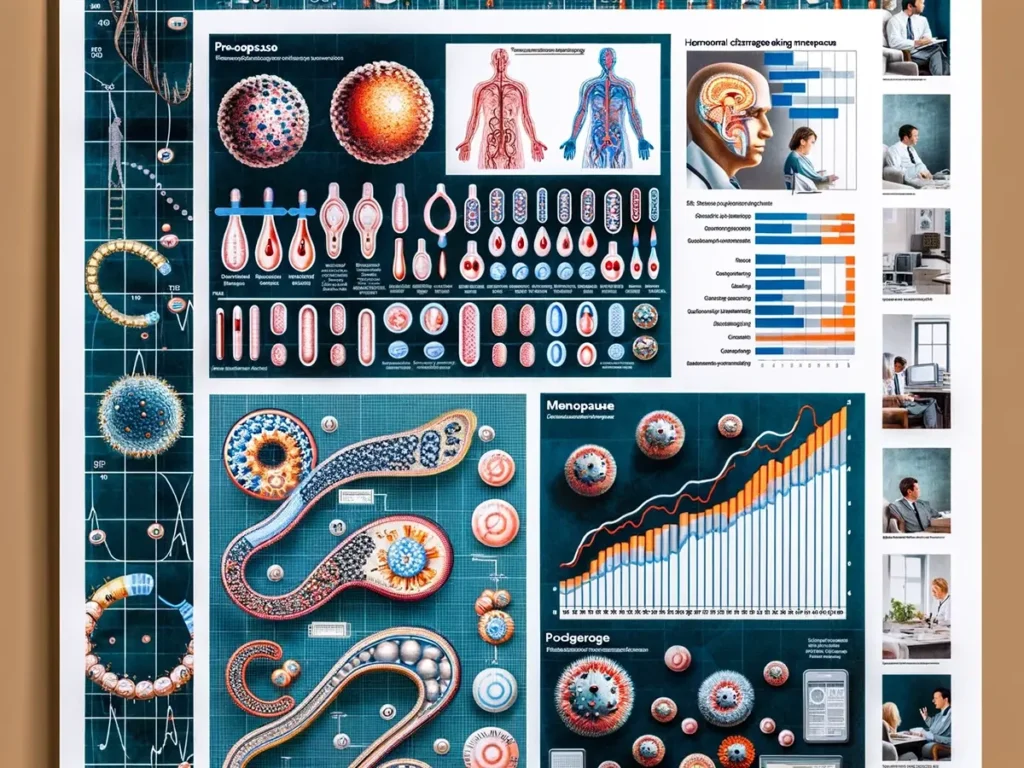Just as menopause is a natural stage in every woman’s life, it is common to wonder if there is a way to halt its symptoms or progression altogether. While menopause is a biological process that cannot be stopped, there are various treatments and lifestyle changes that can help manage its symptoms effectively. In this blog post, we will explore the different ways to navigate through menopause and find relief from its discomforts.
Key Takeaways:
- Menopause is a natural process: Menopause is a normal part of a woman’s aging process and cannot be stopped. It is the permanent end of menstruation and fertility.
- Hormone replacement therapy (HRT) can help manage symptoms: While menopause cannot be stopped, HRT can help alleviate symptoms such as hot flashes, night sweats, and mood swings.
- Healthy lifestyle changes can help: Eating a nutritious diet, maintaining a healthy weight, staying active, and managing stress can all help manage menopausal symptoms.
- Consult a healthcare provider for guidance: If you are experiencing severe symptoms or are considering treatment options for menopause, it is imperative to speak with a healthcare provider who can provide personalized advice and recommendations.
- Be cautious of unproven treatments: Be wary of products or treatments that claim to “stop” menopause, as many are unproven and may have harmful side effects. Stick to evidence-based approaches for managing menopausal symptoms.
The Menopause Process
Menopause, a natural biological process, marks the end of a woman’s menstrual cycles and fertility. It typically occurs in the late 40s to early 50s, but the exact timing can vary. While menopause is a normal part of ageing, the transition can bring various physical and emotional changes.
Biological Mechanisms
The menopause process is driven by biological mechanisms involving the decline of estrogen and progesterone production in the ovaries. As women age, the number of ovarian follicles decreases, leading to irregular menstrual cycles and, eventually, the cessation of menstruation. This hormonal shift can result in symptoms such as hot flashes, night sweats, mood swings, and changes in libido.
Timeline and Stages
With the average age of menopause in the United States being around 51, the process typically unfolds in several stages. Perimenopause is the transitional phase leading up to menopause, characterized by irregular periods and hormonal fluctuations. Menopause itself is defined as the point when a woman has gone 12 consecutive months without a menstrual period. Postmenopause refers to the years following menopause.
To better understand the timeline and stages of menopause, it is essential to recognize that individual experiences can vary. Some women may experience symptoms for several years before menopause, while others may have a more abrupt transition. Consulting with a healthcare provider can provide personalized guidance and support throughout this phase of life.
Interventions and Treatments
If you’re wondering, “Can I stop menopause?”, there are various interventions and treatments available to help you manage the symptoms and effects of menopause. These can range from traditional hormone replacement therapy to alternative and complementary medicine approaches.
Hormone Replacement Therapy (HRT)
A necessary intervention for managing menopausal symptoms is Hormone Replacement Therapy (HRT). HRT involves the use of hormones like estrogen and progestin to replace the ones that the body stops producing during menopause. This can help alleviate symptoms such as hot flashes, night sweats, mood swings, and vaginal dryness.
It’s essential to consult with a healthcare provider before starting HRT, as they can help determine if this treatment is suitable for you based on your medical history and risk factors. HRT can be administered in various forms, including pills, patches, creams, or vaginal rings.
Alternative and Complementary Medicine
Alternative and complementary medicine offers non-traditional approaches to managing menopausal symptoms. Techniques such as acupuncture, herbal remedies, meditation, and yoga have been found to help some women experience relief from hot flashes, insomnia, and mood swings.
While these approaches may not be as extensively studied as conventional treatments, many women find them beneficial in managing their menopausal symptoms. It’s necessary to consult with a qualified practitioner before trying any alternative or complementary medicine to ensure safety and efficacy.
Lifestyle and Prevention Strategies
Now that you seek ways to manage and potentially stop menopause, lifestyle changes and prevention strategies are crucial in this journey. Incorporating healthy habits into your daily routine can alleviate symptoms and improve your overall well-being during this stage of life.
Diet and Nutrition
One key factor in managing menopause symptoms is maintaining a balanced and nutritious diet. Incorporating calcium-rich foods, such as leafy greens and dairy products, can help support bone health during this time. Additionally, consuming foods high in omega-3 fatty acids, like salmon and chia seeds, may help reduce inflammation and support heart health.
Furthermore, limiting the intake of processed foods, caffeine, and alcohol can help alleviate symptoms such as hot flushes and mood swings. Staying hydrated by drinking plenty of water throughout the day is essential to support overall health and well-being.
Exercise and Stress Management
Stress management through regular exercise and relaxation techniques can also play a significant role in managing menopause symptoms. Physical activity, such as yoga, walking, or swimming, can help alleviate stress and improve mood. Additionally, practising deep breathing exercises or mindfulness meditation can help promote relaxation and reduce anxiety.
With a combination of regular exercise and stress management techniques, you can potentially reduce the intensity of menopause symptoms and improve your overall quality of life during this transition.
Ethical and Social Considerations
Many women facing menopause wonder if it is possible to stop or reverse this natural biological process. While medical advancements continue to offer potentially transformative treatments, there are important ethical and social considerations to consider when exploring these options.
The Medicalization of Menopause
Ethical concerns arise when considering the medicalization of menopause, which involves viewing it solely as a medical issue rather than a natural stage of life. While some women may benefit from interventions to alleviate severe symptoms, there is a risk of pathologizing a normal bodily process. It is essential to carefully consider the implications of treating menopause as a medical problem and to prioritize holistic approaches that consider the physical, emotional, and psychological aspects of this transition.
On a social level, the medicalization of menopause can also perpetuate ageist attitudes by framing ageing as a condition to be cured or reversed. This can contribute to negative stereotypes and stigma associated with menopause and ageing, impacting women’s self-perception and societal perceptions of ageing.
Cultural Perspectives on Aging
Considerations of cultural perspectives on ageing add another layer of complexity to discussions around menopause. Different cultures may have varying attitudes towards menopause, with some viewing it as a natural and respected phase of life while others may stigmatize or marginalize menopausal women. Understanding and respecting these cultural beliefs is crucial in addressing the diverse experiences and needs of menopausal women.
To wrap up
As a reminder, menopause is a natural biological process that cannot be stopped or prevented. While there are treatments available to manage symptoms and improve quality of life, there is no way to halt the progression of menopause. It is essential to consult with a healthcare provider to discuss options and develop a personalized plan for navigating this stage of life.
FAQ
Q: Can I stop menopause?
A: Menopause is a natural biological process and cannot be stopped. However, there are various treatment options available to manage menopausal symptoms.
Q: What are the symptoms of menopause?
A: Common symptoms of menopause include hot flashes, night sweats, mood swings, vaginal dryness, and sleep disturbances.
Q: Can hormone therapy help with menopause symptoms?
A: Hormone therapy can effectively manage menopausal symptoms by replacing the hormones that the body no longer produces in adequate amounts. It is important to consult with a healthcare provider to discuss the risks and benefits of hormone therapy.
Q: Are there natural remedies for managing menopause?
A: Yes, some women find relief from menopausal symptoms through lifestyle changes such as regular exercise, a healthy diet, stress management techniques, and herbal supplements like black cohosh or evening primrose oil. However, consulting with a healthcare provider before trying any natural remedies is essential.
Q: How can I stay healthy during menopause?
A: To stay healthy during menopause, it is essential to maintain a balanced diet, stay physically active, exercise regularly, practice stress-reducing activities such as yoga or meditation, and attend regular check-ups with your healthcare provider.






